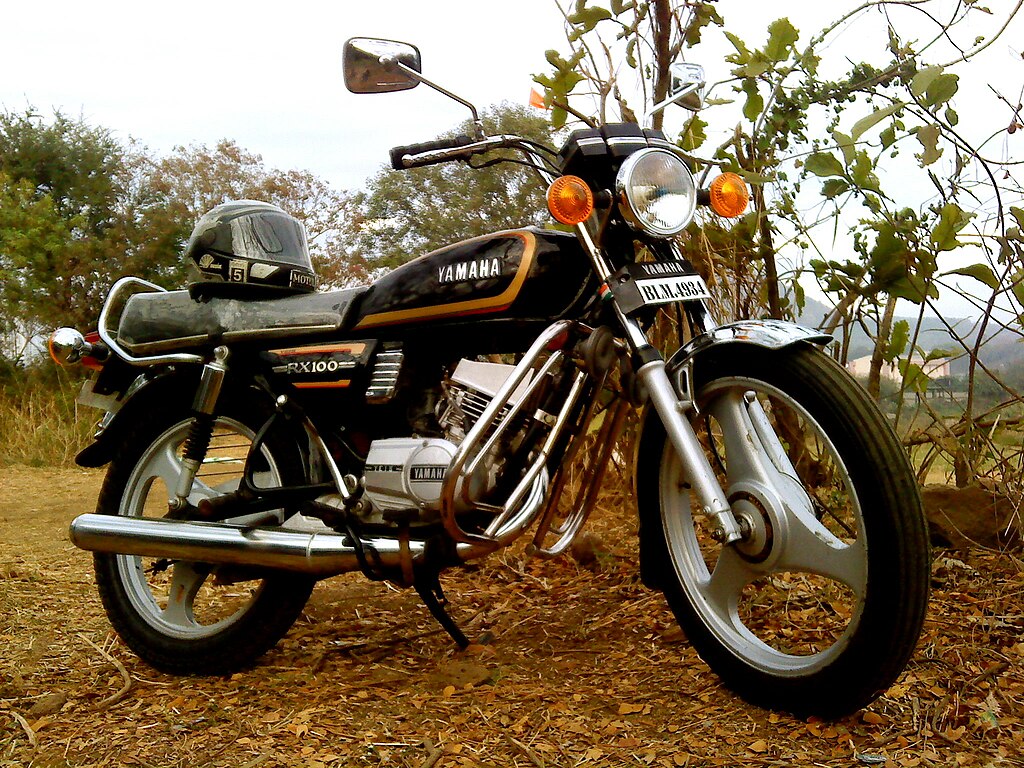Owning a classic bike is a dream for many motorcycle enthusiasts, but the road to keeping them running is far from smooth. My name is Ahun Avari, and at 23, I’ve already experienced both the highs and lows of owning these timeless machines. My passion for motorcycles started young, with my dad’s iconic Suzuki Hayabusa. He would take me for spins on weekends, and the raw power of that bike left an indelible mark on my soul. However, it wasn’t the superbike’s speed or aesthetics that truly ignited my love for motorcycles — it was something much smaller and humbler: a Yamaha RX 100 from 1994.
A Humble Beginning: The RX 100
At the age of 19, I stumbled upon a rusty, neglected Yamaha RX 100. The bike, once an icon on Indian roads, was a shadow of its former glory. But there was something about it that called out to me — maybe it was the nostalgia for a simpler time, or maybe the challenge of bringing it back to life from scrap. Whatever the reason, I knew this was going to be my project.
The RX 100 was not just any bike; it was a symbol of an era. When it was first introduced in the mid-80s, it revolutionized the Indian biking scene. With its lightweight frame and powerful 2-stroke engine, it became an instant favorite among riders. For me, this bike represented everything that was raw and pure about riding.
But bringing an old bike like this back to life is no easy task. I spent months hunting down parts, some of which were nearly impossible to find. From the carburetor to the original exhaust, every piece was either scavenged from junkyards or bought from obscure dealers. There were moments when I wanted to give up — when the engine wouldn’t start no matter how much I tuned it, or when rust seemed to be winning the battle against time.
The Pain of Restoration
Restoring a classic bike is both an art and a test of patience. The RX 100, despite its simple construction, presented endless mechanical challenges. The engine, in particular, was a tricky beast. As a 2-stroke engine, it was prone to issues like oil leaks, misfiring, and overheating. Every time I thought I had fixed one problem, another would pop up. The carburetor would clog up, or the ignition system would fail, leaving me stranded in the middle of a ride.But these mechanical problems weren’t just frustrating — they were expensive. Finding genuine parts for a bike that’s been out of production for decades can cost a fortune. And then there’s the labor. I did most of the work myself, but there were moments when I had to rely on mechanics who specialized in classic bikes. Their expertise didn’t come cheap, and neither did their time.
There’s also the constant worry of maintaining a vintage bike. Modern bikes are built with precision and advanced technology, but classics like the RX 100 are more temperamental. You have to be constantly aware of how the engine sounds, how it feels under your hands. A slight change in the hum of the engine could signal a major problem. This level of attentiveness, while exhausting, is part of the bond you form with the bike. You don’t just ride it — you live with it.
The Joy of the Ride
But despite all the hardships, nothing compares to the joy of riding a classic bike. There’s something about these machines that makes every ride feel special. It’s not just about the speed or the power; it’s about the connection between rider and machine. The RX 100, with its throaty exhaust note and nimble handling, feels alive in a way that modern bikes often don’t.
When you’re riding a restored classic, you’re not just riding a motorcycle — you’re riding a piece of history. Every ride feels like a journey back in time, to an era when bikes were simpler, rawer, and more connected to the rider. The joy comes from knowing that you’ve played a part in preserving that history, in keeping a piece of the past alive on the roads.
There’s also the thrill of being noticed. Classic bikes like the RX 100 stand out, and wherever you go, people turn their heads. You get questions from curious onlookers, compliments from fellow bikers, and the occasional knowing nod from someone who remembers riding an RX 100 in its heyday. It’s a feeling of pride, knowing that your hard work and dedication have brought this iconic machine back to life.
Community and Camaraderie
Owning a classic bike also connects you to a unique community. There’s a certain camaraderie among classic bike owners that you don’t always find with modern bike enthusiasts. You share stories of long nights spent working in the garage, of rare parts found in unlikely places, and of the thrill of getting the engine to roar back to life after months of frustration.
I’ve met many like-minded individuals through my RX 100 project. From online forums to local riding clubs, there’s a whole world of people who share my passion for classic bikes. We swap tips, recommend mechanics, and even trade parts. It’s a supportive, tight-knit community that’s always ready to help out when someone is stuck with a tricky restoration problem.
The Lessons Learned
Restoring and maintaining a classic bike teaches you patience, perseverance, and humility. There will be days when nothing goes right, when the bike refuses to start despite all your best efforts. There will be times when you question whether it’s all worth it — the time, the money, the frustration.
But then there are the moments of triumph. The first time you hear the engine roar to life after months of work. The first ride down an empty road, feeling the wind against your face as the bike hums beneath you. Those moments make it all worth it.
The RX 100 has taught me to appreciate the simple things — the feel of a well-oiled engine, the satisfaction of a perfectly tuned carburetor, the joy of a long ride on a quiet road. It’s reminded me that motorcycles are more than just machines; they’re part of you





Leave a comment
All comments are moderated before being published.
This site is protected by hCaptcha and the hCaptcha Privacy Policy and Terms of Service apply.